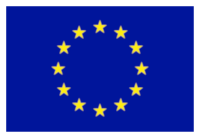Being a critical part of the world economy, travel and tourism have always embraced and innovated on modern digital technologies, which demonstrate increased efficiency in managing complex, information-intensive processes and offering improved travel experience to the consumers.

User specific recommendations raise interest, as they advance messaging in online campaigns to a more tangible and friendly touch with the target audiences, but research is still in place on the eventual impact that such content may have on the economic growth and/or reputation on the organizations in these critical business sectors.
It is remarkable that the global tourism market crossed USD 4,7 trillion in 2020 compared to USD 8 trillion in 2017, due to the global coronavirus (COVID-19) pandemic that began in early 2020. The use of digital technologies like blockchain in tourism will help expand further the sector by providing a new seamless user experience and mitigating the impact of the COVID-19 pandemic on the tourism sector.
Needs and Challenges to be addressed
In the travel and tourism sector, there is an increasing demand for trustworthiness and reliability of transactions as well as validity, authenticity, and traceability of the available information through harnessing the power of blockchain technology. Current works span the entire spectrum of travel and tourist services and activities, from pre-trip decision making to post-trip recollections, while leading travel apps and agencies encourage users to participate in recommendations and reviews. However, the validity of user recommendations and the way that they are travelling through online communities is of major importance.
Influencers, nowadays, can control the reputation of the touristic services in a destination, but, the content that is used may be disputable. On the other hand, competition is really high and the use of online messaging to control communities in digital channels can be based on practices that intentionally mislead the mass. For example, fake online accounts have been used in online travel apps and the social media to post comments and multimedia content that disparage accommodation or other touristic services in a destination or area about their poor quality and decry the hospitality spirit of local residents. Additionally, picturesque images and attractive posts can be proved irrelevant to the destination or organization that is actual being advertised, thus creating a sense of fake but totally ideal reality.
In summary, the main challenges to be addressed include the following:
- Authenticity and proof of location for the published content;
- Privacy, copyright and intellectual property rights for the creator of the content;
- Collection and integration of multi-modal data, including image, video and their combination with text and other rich media formats;
- When the public content needs to be reused by third parties, traceability to the original source of publication is required.
What is the contribution of the CONTOUR project to the tourism sector and what are the potential applications of the offered platform?
User recommendations posted in travel apps and social media are now widely used as evidence to better approach audiences, through digital marketing tactics for destination brandingTrusted CONtent for TOURism marketing purposes will develop a blockchain-based framework for online, user-generated travel reviews, that ensures: (i) Collecting and integrating multimodal content from user posts related to travel and tourism services; (ii) Guaranteed authenticity, proof of location, privacy, and intellectual property rights for user-generated content; (iii) Delivery of the user-generated content to interested third parties for reuse, for purposes of promoting travel experiences and recommendations in the form of stories; and (iv) Maintaining the traceability to the original publication.
The potential applications of this new approach are a) to provide custom services to interested third parties, like public, tourism organizations and travel agencies, for reusing the generated content and b) to engage users, in providing content to a platform that guarantees ownership and authenticity of the provided information.
Why Blockchain is important?
Blockchain Technology is crucial, in order to tackle the issue of trustworthiness for online reviews. Online reviews are of special interest to the travel and tourism industries as they provide valuable insights and novel social sharing forms. However, they are susceptible to the risk of content manipulation and tampering, as well as inclusion of fraudulent, deceptive, or malicious content that may originate from either unverified users or anonymized competitors in the same industry. Blockchain solution guarantees the implementation of a decentralized, secure, and trustworthy review system, that stores user-generated content such as reviews, experiences, and recommendations in a blockchain ledger. Since a ledger is by-design immutable and distributed, it is not possible to manipulate or tamper the stored content.
In this context, CONTOUR in order to provide trustworthy content will exploit the blockchain’s characteristics for tracking the original source of publication and providing data immutability that prevents new malicious inputs and tampering of old data.
The role of ITML within the CONTOUR project
Within CONTOUR, ITML will offer for use the Data Fusion Bus (DFB), a customizable product for data fusion from multiple modality data streams that store, pre-process and make available data in a trustworthy manner. All data collected and stored in DFB will be made available to CONTOUR’s User Interface. ITML will also be responsible for the smooth integration of a Blockchain solution in order to implement a decentralized, secure, and trustworthy platform. Finally, ITML will oversee the technical, R&I, and business management of the project.

CONTOUR project started in August 2021 and its duration is 15 months.

This project has received funding from the European Union’s Horizon 2020 Research and Innovation program under grant agreement No 957228.
